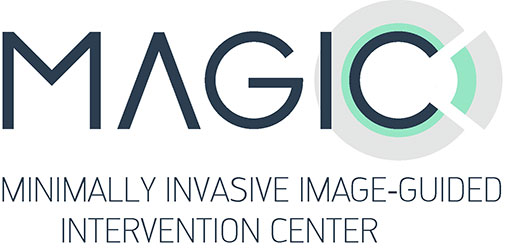By the Radboud UMC
Radboudumc is one of the leading centres for prostate cancer imaging worldwide. Within the ProCAncer-I project, two groups of the Department of Imaging of Radboudumc are represented. The Diagnostic Image Analysis Group (DIAG), under the Departments of Radiology, Nuclear Medicine and Anatomy, has pioneered the development of prostate computer-aided diagnosis (CAD) and decision support systems, with a scientific archive of nearly 10.000 anonymized mpMRI scans.


In recent years, artificial intelligence (AI) has become indispensable for medical image analysis. Deep learning (DL) is able to capture a complex hierarchy of features; reaching competitive performance relative to expert radiologists. The goal of DIAG in this context is to develop automated DL-CAD algorithms that can identify potential biomarkers in prostate MRI and reliably discriminate clinically significant lesions from indolent cancer and benign tissue. In turn, DIAG aims to improve diagnostic certainty throughout the clinical workflow of prostate cancer management and facilitate stronger patient outcomes.
The Minimally Invasive Image-Guided Intervention Center (MAGIC) is also part of the Department of Radiology and Nuclear Medicine. MAGIC has its roots in MRI-guided prostate treatment and has expanded its expertise to image-guided oncologic interventions such as biopsy of prostate, bone and liver and (non-) thermal ablations of pancreas, liver, kidney, prostate and vascular malformations. The group currently consists of various physicians and technical physicians, combining both technical as clinical expertise to create a significant impact on healthcare and bring our technologies to daily clinical practice.
A large research theme within the MAGIC group is related to interventions and innovations regarding prostate cancer. As the field of AI for prostate cancer is rapidly advancing, the clinical implementation of these techniques is lacking. During the ProCAncer-I project, researchers from MAGIC will focus on bridging the gap between advanced AI innovations and the clinical implementation and feasibility of these techniques. With this, MAGIC aims to facilitate a significant clinical impact of AI in the clinical workflow and management of prostate cancer.
